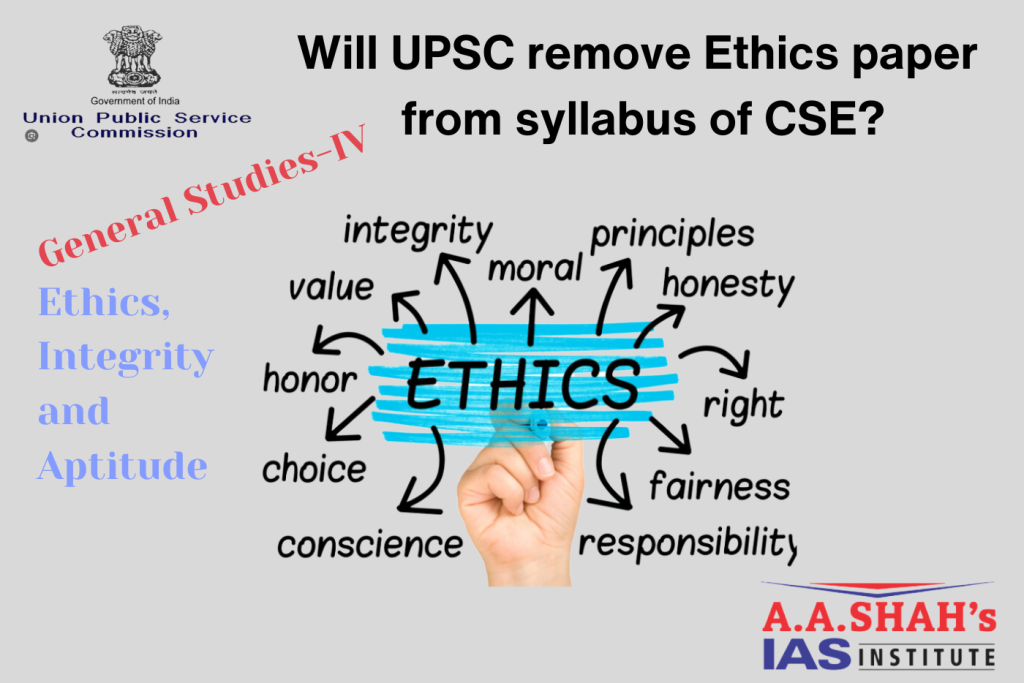
As of now, there are no indications that the Ethics paper, officially known as General Studies Paper IV, will be removed from the UPSC Civil Services Examination (CSE) syllabus. The Ethics paper remains a significant component of the UPSC Mains examination. It assesses candidates on their understanding of ethical principles, integrity, and their ability to apply these concepts in public administration and governance contexts.
Dr Sanjeev Chopra, Former Director of Lal Bahadur Shastri National Academy of Administration (LBSNAA) has in recent interview suggested that Ethics paper from syllabus of CSE. He was talking with reference to the recent controversy of trainee IAS officer Puja Khedkar, which has raised many doubts in the minds of aspirants with regard to UPSC, LBSNAA, the examinations process and the conduct of civil servants. He quoted that ‘This recent incident should be seen as an aberration. It doesn’t happen every year. There are three aspects to this case – the first aspect is tricking or playing with the system as her father was a government officer, second is her problematic behaviour as a probationary officer, and third, which is most important, is the need of a systematic changes to assure such incidents do not happen in the future.’
The Ethics paper covers a broad range of topics, including:
Ethics and Human Interface: Essence, determinants, and consequences of Ethics in human actions; dimensions of ethics; ethics in private and public relationships.
Human Values: Lessons from the lives and teachings of great leaders, reformers, and administrators; the role of family, society, and educational institutions in inculcating values.
Attitude: Content, structure, function; influence and relation with thought and behavior; moral and political attitudes; social influence and persuasion.
Aptitude: Integrity, impartiality, and non-partisanship; objectivity; dedication to public service; empathy, tolerance, and compassion towards weaker sections.
Emotional Intelligence: Concepts and their utilities and application in administration and governance.
Contributions of moral thinkers and philosophers from India and the world.
Public/Civil Service Values and Ethics in Public Administration: Status and associated problems; ethical concerns and dilemmas in government and private institutions; laws, rules, regulations, and conscience as sources of ethical guidance; accountability and ethical governance.
Probity in Governance: Concept of public service; philosophical basis of governance and probity; information sharing and transparency in government; right to information; codes of ethics and codes of conduct; challenges of corruption.
The structure of the Ethics paper includes direct concept-based questions as well as case studies to evaluate candidates’ ethical reasoning and decision-making abilities in real-life scenarios.
Hence, students are advised not to pay heed to any rumours and keep continuing to prepare for GS Paper- IV for civil Services Mains Examination.
